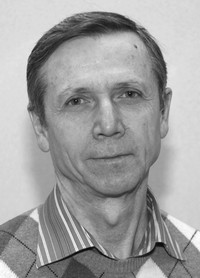Features of body response of students with health limitations to multidirectional physical loads
Keywords:
S.P. Letunov’s test, body response to physical loads, students exempted from physical education classes.Abstract
Objective of the study was to reveal the features of the body response of students temporarily exempted from physical education classes to multidirectional loads in the modified version of S.P. Letunov’s functional test.
Methods and structure of the study. The study conducted at Surgut State University involved 16 first-year female students temporarily exempted from physical education classes. After setting up the equipment and a 5-minute rest, the female students sequentially performed an orthostatic test: 20 squats in 30 seconds, a 15-second run in place at a maximum pace, a 3-minute run at a pace accessible to the subjects (the rest intervals after loading were, respectively, 2, 3, 4, and 5 minutes).
The mobile COSMEDK5 and GuarkT12x systems were used to measure respiratory, metabolic and electrocardiogram parameters during testing. The following baseline values were recorded: oxygen consumption, carbon dioxide production, pulmonary ventilation, heart rate, blood pressure, energy consumption. Based on these data, the following parameters were calculated: respiratory coefficient, oxygen pulse, pulse cost and a number of other parameters.
Results and Results and conclusions. The study found that, in terms of a comprehensive body response, the most informative tests were 20 squats and 3-minute run. We detected a more significant increase in the respiratory parameters of the students compared to the hemodynamic ones. In this view, the determination of the type of body response to physical loads based exclusively on pulse and blood pressure does not fully reflect the real picture. The use of advanced mobile systems to assess physical load tolerance in the field provides the necessary information for dosing physical loads.
References
Vishnevskiy V.A., Peshkova N.V. New academic physical education and sports service model for disadvantaged health groups. Teoriya i praktika fiz. kultury. 2021. No. 3. pp. 91–94.
Echevskaya O.V. Adaptive physical education of special health group students. Vestnik TGU. 2011. No. 9 (101). pp. 90–94.
Krasilnikova E.V., Konovalova N.G., Yarullina A.I. Physical education teaching method for special health group students. Vestnik Kuzbasskoy gosudarstvennoy pedagogicheskoy akademii. 2011. pp. 5–34.
Karpinskiy A.A., Gardagina L.G., Karpinskaya N.I. et al. Organization of work with students exempted from physical education practices. Uchenye zapiski universiteta im. P.F. Lesgafta. 2019. No. 4 (170). pp. 128–131.


